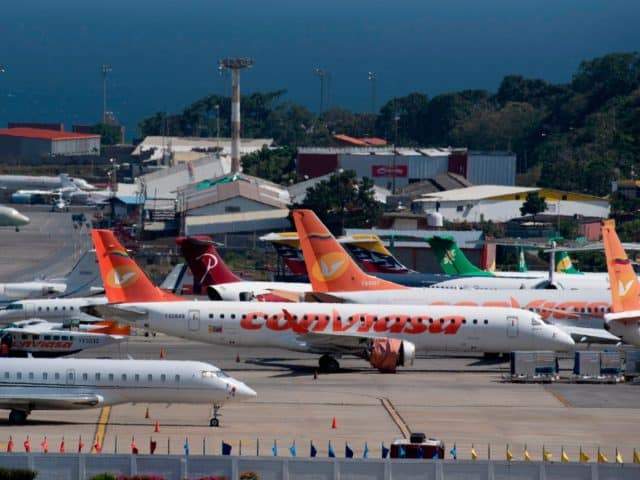Biden Lifts Some Venezuela Sanctions Related to ‘Ports and Airports’

The U.S. treasury department on Tuesday authorized the socialist regime of dictator Nicol´ås Maduro to conduct “transactions and activities” necessary to operate “ports and airports in Venezuela,” relaxing sanctions placed on the Latin American country by former U.S. President Donald Trump’s administration.
“[A]ll transactions and activities involving the Government of Venezuela prohibited by Executive Order (E.O.) 13884 ofAugust 5, 2019, as incorporated into the Venezuela Sanctions Regulations … that are ordinarily incident and necessary to operations or use of ports and airports in Venezuela are authorized,” the U.S Treasury Department’s Office of Foreign Assets Control wrote in a new General License issued to Venezuela on February 2.
Former U.S. President Donald Trump issued Executive Order 13884 on August 5, 2019, imposing a freeze on all Venezuelan government assets in the U.S. The sanctions were part of a larger campaign by the Trump administration to oust Venezuelan dictator Maduro, who the U.S. considers an illegitimate ruler. The August 2019 executive order banned U.S. companies from engaging in business dealings with the Venezuelan government.
“All property and interests in property of the Government of Venezuela that are in the United States … are blocked and may not be transferred, paid, exported, withdrawn, or otherwise dealt in,” the order read.
The February 2 U.S. Treasury general license also allows “transactions and activities that had been prohibited in [U.S.] Executive Order 13850 of November 2018 – amended in January 2019 – involving the [Venezuelan] National Institute of Aquatic Spaces (INEA), or any entity in which this institution owns, directly or indirectly, an interest of 50 percent or more,” the Venezuelan government-sponsored news site TeleSur reported on Tuesday.
The new general license does not authorize “any transaction or activity related to the export or re-export of diluents, directly or indirectly, to Venezuela.”
In contrast to the Biden administration’s action easing sanctions, U.S. State Department spokesman Ned Price said on February 3 that one of the department’s main goals over the next four years would be “targeting regime officials and their cronies involved in corruption and human rights abuses.”
President Biden’s new administration aims to collaborate more “with a number of allies and partners to bring about progress towards democracy in Venezuela,” Price told reporters.
“Nicolás Maduro is a dictator,” he added. “The overriding goal of the Biden-Harris administration is to support a peaceful, democratic transition in Venezuela through free and fair presidential and parliamentary elections,” the State Department spokesman said.
Any prospect of negotiations between Maduro and Biden’s administration remains off the table, according to Price.
Photo: YURI CORTEZ/AFP via Getty
Link: https://www.breitbart.com/national-security/2021/02/04/biden-lifts-some-venezuela-sanctions-related-to-ports-and-airports/




